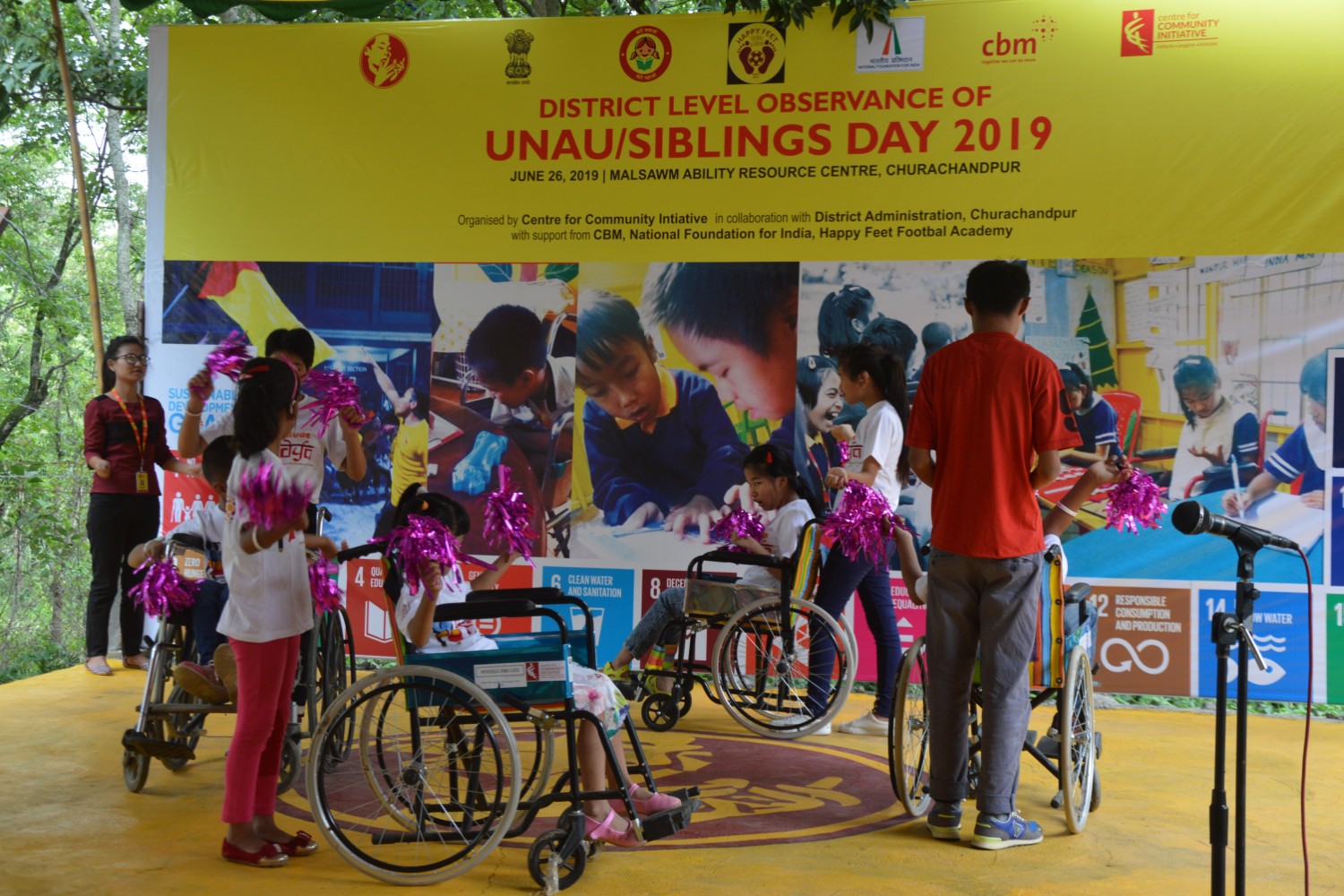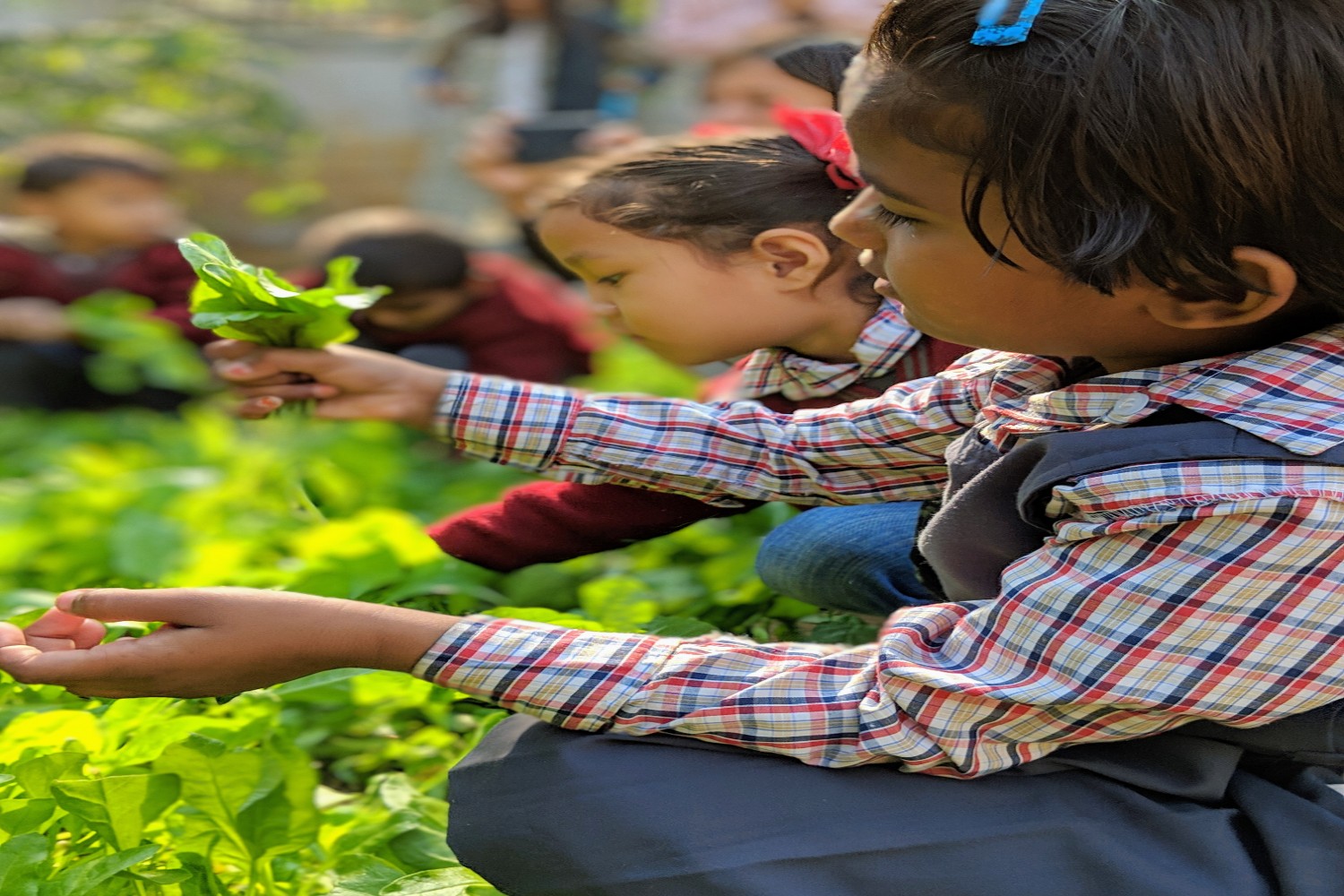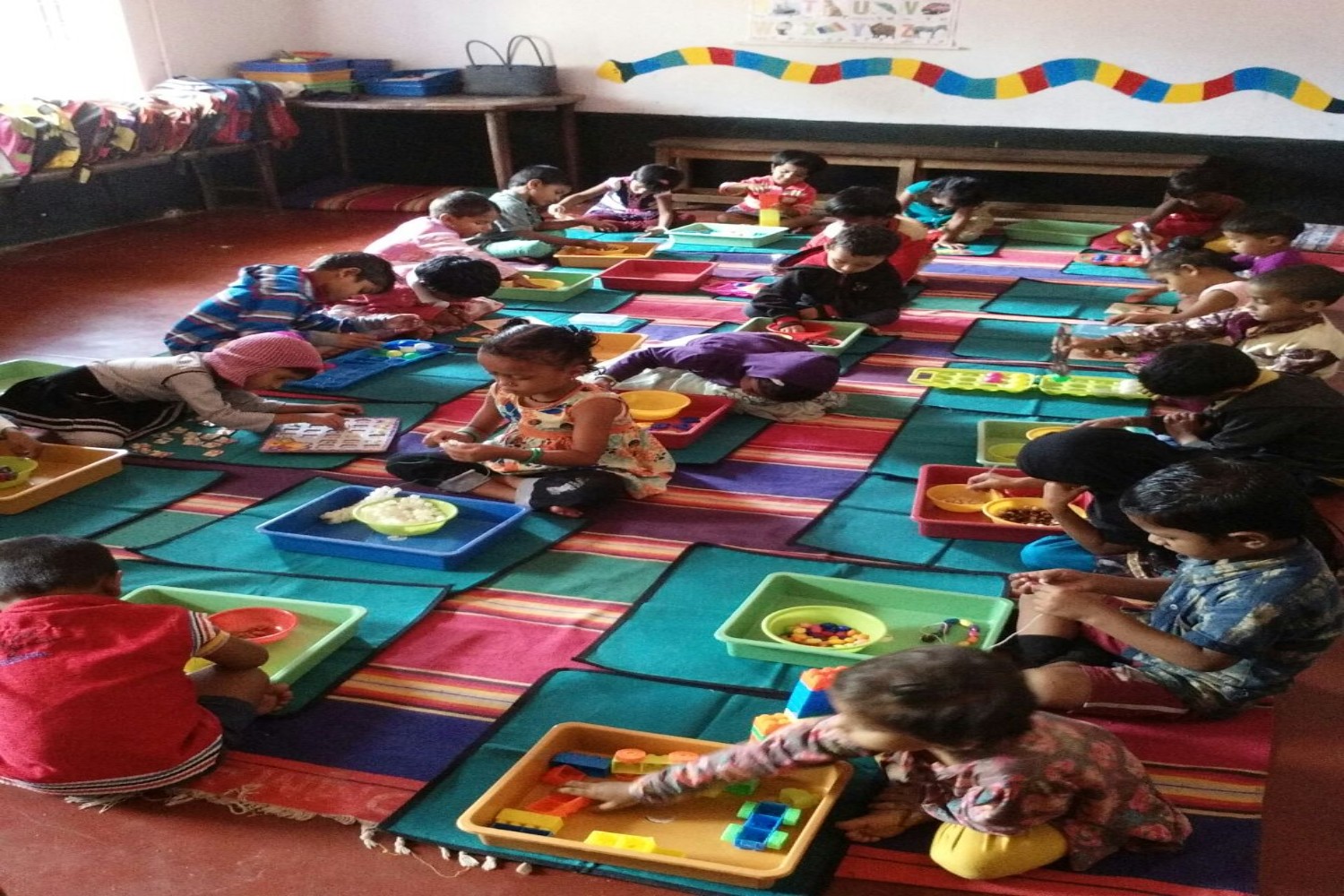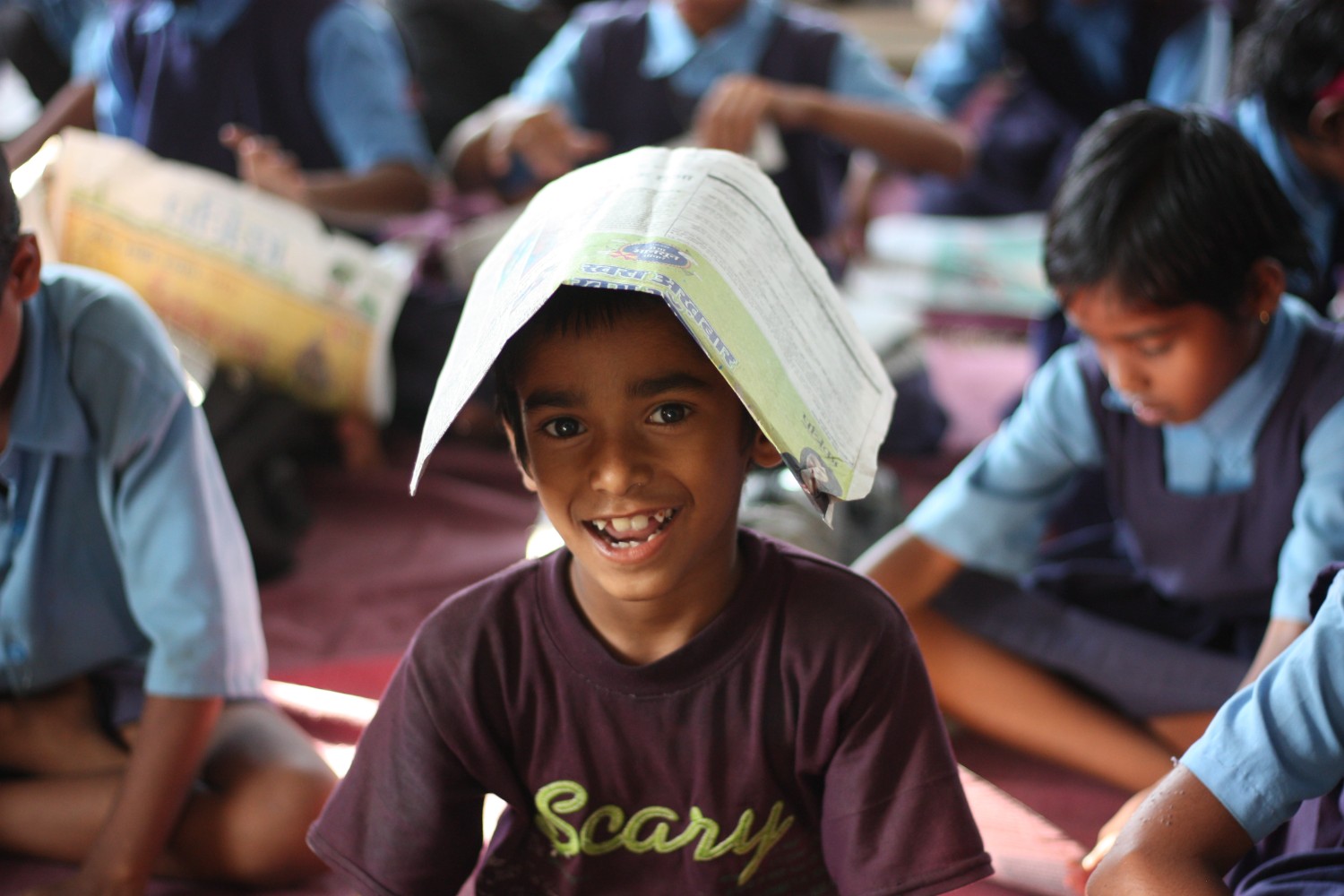Towards School Improvement – Enhancing Quality to Ensure Equity in Educational Outcomes
In the Ground Zero article, we discuss how organizations across the country are working towards enhancing quality to ensure equity in educational outcomes, and thereby ensuring continuous school improvement processes.

School improvement is a complex process wherein, through altering classroom methods and incorporating transformed management practices, schools are capacitated to deliver enhanced learning experiences and outcomes for their students.
It requires close partnerships between all stakeholders including the government, teachers, parents and nonprofits. In this piece, we speak with non-profits from across the country to understand their approaches and interventions in the field of school improvement.
Caring with Color
Caring with Colour (CWC) is a nonprofit organization that works towards improving the quality of education in government schools in the country by helping teachers adopt experiential learning methods in classrooms. Foundational educational policy documents in India, such as National Curriculum Framework 2005 and National Education Policy 2020, emphasize the fact that adopting experiential teaching methods not only helps students learn better in a fun and engaging environment, but also supports build 21st century skills.
However, even now teachers across the country mostly rely on traditional chalk and talk based learning methods. CWC plans to bridge this gap between policy and implementation by providing experiential teacher training programs, experiential teaching content and building a strong teacher support system to implement experiential methodologies. They see this as central to their goal of school improvement by improving the quality of education. They work with government primary schools because these cater to eighty percent of the children of the country. A mere twenty percent of our children go to private/semi-private schools.
The CWC team initially tried to understand the medium of engagement in classrooms, the challenges teachers were facing, learning levels of children, etc. Syed Atheequlla, Program Manager with Caring with Color shares, “The traditional chalk and talk way of teaching is still prevalent across schools due to several reasons. When we introduced the ideas around experiential teaching methods, teachers were keen on adopting them. They initially had the misconception that to teach experientially they would require sophisticated labs and equipment. CWC also found that enhancing their subject knowledge expertise goes a long way in teachers easily adopting experiential teaching techniques. So, we created a program design through which we try to remove these misconceptions in teachers’ minds and impart the required skills and motivation to teachers to try out experiential methods. Our experiential teaching content includes experiential lesson plans coupled with explainer videos, worksheets and simulations and Project Based Learning modules. These are key components of our program design that give teachers ideas about how concepts in the textbooks can be taught using no-cost / low-cost methods that utilize material easily available in their environment.”

With the National Education Policy 2020 emphasizing the importance of turning classrooms into experiential learning spaces, CWC believes that it is imperative to revisit teacher training frameworks to bridge the gap and deliver on the promise of improved learning outcomes for students.
The team spoke with stakeholders across the Education Department – at the levels of districts, blocks, clusters and schools – to integrate experiential learning. They first determined the specific subjects that primary schoolteachers are either teaching or are interested in teaching.
Then they identified the difficulties teachers face in three critical subjects – Mathematics, Science and English. The team prepared 20 experiential training modules in these three subjects for teachers. Then they reached out to more than six thousand teachers in Tumakuru and Ramanagara districts.
CWC designed a new method of teacher training that is aimed at equipping teachers with the knowledge, skills and perspectives they require to transform their classrooms into experiential learning spaces. In the face of the pandemic, the team used technology platforms that helped primary school teachers in these districts to remotely engage with training programs.
The training was held in close collaboration with the District Institute for Education and Training (DIET) in both the districts. Resource persons and trainers in the DIETs were identified and trained to deliver live online training sessions in collaboration with CWC teacher trainers. The online teacher training modules were supplemented with pre and posttraining assessments, reading materials, assignments, and projects, through which teachers could further deepen their understanding. CWC also developed an android app called ‘Teachopia,’ through which the training programs, as well as experiential teaching content, can be delivered to teachers across these districts.
The team also tries to ensure that all the government functionaries across the board come together for the transformation of the entire district in a sustainable way. Rajeev Annaluru, Chief Operating Officer of CWC shares that, “It was important to integrate ourselves with the rest of the Education Department, because a government schoolteacher does not operate in isolation.
When a Block or Cluster Resource Person (BRP/CRP) comes into the classroom and asks a question to the teacher that is tangential or opposite to the experiential methods taught in the training, the teacher will be discouraged from following that approach. So, we work with the cluster and block level functionaries in a way that they are our close partners in implementation. When they visit the schools for observations, they ask questions that reinforce the importance of using experiential teaching methods to the teachers.”
The CWC team believes that for children to have joyful and exploratory learning experiences in classrooms, all the stakeholders across the education department must work in tandem with each other and support teachers in adopting the experiential methods as envisaged by the NEP. This can help them in meaningfully engaging with school improvement processes.
Vidhya Vidhai Foundation
Vidhya Vidhai is a non-profit working towards enabling schools to deliver quality education. They collaborate with education leaders to strategically plan and execute the best systemic leadership practices in the school education system. Currently, they work with state-run government schools and lowincome private schools in Tamil Nadu and Puducherry. Through their programs, they equip the leaders with school leadership knowledge, skills and attitudes to deliver quality education.
The Vidhya Vidhai team believes that school transformation cannot be limited to specific aspects such as teacher-training, student assessments, curriculum support, technology in education, etc. With all these aspects being interrelated to each other, it is only when all the relevant stakeholders of a school collaborate and align on purpose that the intended impact can be ensured.
Regila Marinus, co-founder of Vidhya Vidhai, shed light on the role of headteachers in the school system. She shared that the headteachers, who are appointed to lead the schools, are teachers who have had two to three decades of experience. Each teacher is used to managing a classroom of thirty to forty children. However, as headteachers, the responsibility of managing the affairs of the school is thrust upon them. Teachers who are promoted to become headteachers do not receive adequate training that prepares them to take up the elevated roles and responsibilities.
The Vidhya Vidhai team focuses on enhancing the understanding of the headteachers on varied aspects of quality education – innovative teaching-learning practices inside the classroom, effective school-community partnerships, and student-centered resources in the school – to promote learning and a culture of trust, respect and collaboration among leaders, teachers, and students.
The team imparts the required knowledge and skills to headteachers, so that they can effectively carry out their roles and responsibilities. A step-by-step task list to improve a particular aspect or domain of their school is suggested to the headteacher. For instance, to improve reading levels of students, the headteacher is given a task list that could entail forming a committee to lead this initiative, ensuring every committee member goes through the module to know strategies to improve reading competencies in the school, committee members orienting other teachers on improving reading, committee members using classroom observation tools to map trends and improvements and communicating feedback to teachers, etc.
The team has developed a ‘School Leaders’ Tool Kit’ that aids headteachers to make observations about the school and the classrooms to gather evidence for making decisions. The toolkit helps school leaders to gain insights into the quality of teaching and learning practices, connect with the stakeholders of the school, appreciate the best practices and efforts toward their school’s development, provide constructive feedback and interpret gaps and challenges in the implementation of certain plans.
These tools ensure that, even if the headteachers might not have the required skills and the time in the outset, they are able to get the information, analyze the data and efficiently make decisions. The data points help in gathering information regarding the key domains mentioned in the School Standards and Evaluation Framework developed by the National University of Educational Planning and Administration (NUEPA), under the aegis of the Ministry of Human Resource Development (MHRD). These are used as references for evaluation and improvement.

The Vidhya Vidhai team begins by understanding the schools’ needs and getting a sense of the strengths and gaps in the beliefs and actions of the headteachers. The team strategizes on creating an improvement journey for the schools in tandem with the schoolteachers’ learning journeys. The team capacitates teachers through self-paced learning modules along with other tools to implement their learning in school. In the implementation phase, schoolteachers work on improvement projects focused on those aspects that contribute to quality education in their schools. The progress of these projects is collectively monitored and evaluated to track the growth of the leader and their school.
The Vidhya Vidhai team proposes incremental steps to deal with challenges. For instance, one of the headteachers found it difficult to maintain an interactive relationship with the children’s parents. The team offered the headteacher a simple solution and there was no pressure to adopt any measure involving a lot of time and effort. In this case, they suggested the headteacher communicate with parents over WhatsApp and share updates about the school such as upcoming school management committee meetings, etc. Now parents drop by the office of the headteacher and check for things and inquire about events, etc., based on the messages they have received.
The vision document is another tool that the Vidhya Vidhai team uses to help the leaders identify and clearly portray their expected outcome and impact for cluster development. The leaders list down challenges that will be overcome by them in the upcoming academic year. It also lists activities that could contribute to the overall development of the cluster.
The Vidhya Vidhai team, based on the challenges communicated by the school headteachers and its own observations, suggests specific skill-building, self-based learning tools that capacitate them. Regila is optimistic that in this journey of school improvement, they will continue to innovate and develop tools that empower school leaders to make well-informed and optimal decisions.
Kshamtalaya Foundation
Kshamtalaya is an NGO working in the tribalrural blocks of Kotra and Gogunda in Udaipur district in Rajasthan, and in Delhi. According to the census of 2011, Kotra, a block of Udaipur district, with a majority tribal population, has a literacy rate of less than 25% and the female literacy rate was less than 12%. The Schedules Tribes of Rajasthan are the worst affected with respect to school dropouts. The transition rates from primary to upper primary and from secondary to higher secondary is worrisome. In this underserved area, Kshamtalaya supports schools and communities to build collective leadership and drives the agenda of learning together.
Kshamtalaya’s core focus is to bring systemic transformation in the domains of learning, well-being and governance by working with schools as a unit of change. A core focus area remains on synergy. Vivek Kumar, co-founder and Chief Executive Officer, Kshamtalaya Foundation adds, “The trust deficit amongst teachers and parents is evident. For school improvement, our team steps in to create opportunities, platforms and spaces through facilitating parent-teacher meetings, school management committee meetings, learning festivals, monthly panchayat level meetings – shiksha samvaad – etc., where parents get exposed to understanding how children are learning and what it means for a child to learn well in school. Parents are also encouraged to engage with teachers in a meaningful way.”
Schools in the area have reopened after a gap of two years. The Kshamtalaya team understands that for children to engage passionately with educational processes, they need to make learning contextual, bring children’s lived experiences into the classroom and build connections. It believes that learning is a function of curiosity, motivation and attention. Storytelling and arts-integrated pedagogy used by the organization aim to build curiosity and motivation among the students.
Integration of social, emotional and ethical learning for character development and building important skills such as resilience, self-expression, ethical discernment, compassion and empathy is attempted in the classrooms by integrating concepts. For instance, in a class on water, the teacher nudges students to explore their emotions around water, its availability, and the challenges in their villages around water. Each class starts with revisiting class agreement and practices of mindfulness to allow children to settle in and cultivate the habit of bringing their attention back to the moment.
In the two East Delhi Municipal Corporation schools the Foundation works in, they have explored the possibilities of building specific expertise of the teachers in the domains of child-centered pedagogy, well-being and governance. As the teachers observe increased engagement of children through innovative pedagogical practices, they become motivated to try out new things with their classes.
Vivek shared that schools in Kotra and Gogunda struggle with issues such as irregular mid-day meals, overburdened teachers, defunct SMCs, etc. In the communities, parents are interested in improving the learning outcomes of their children and in ensuring the efficient running of schools through frequent SMC meetings and parent-teacher meetings (PTMs). They also value good quality education for their children. However, they are reluctant to send their wards to school, as they believe that the education imparted in the local government schools is not of good quality.
The team is aware that in the wake of the pandemic, parents were also adversely affected as they lost their livelihoods. It became imperative to create spaces of nurturance and dialogue so that parents could share their concerns and inputs and understand learning processes. Vivek added that the Kshamtalaya team believes that empathy is a two-way street and parents will wholeheartedly support the learning of their children if they are listened to with deep attention.
Vivek added, “In Udaipur, building awareness in the community around education, and getting trust and support from them to ensure quality education for their children, has been an enriching journey.”
Through monthly dialogues, SMC meetings, Learning Festivals and home visits facilitated by the Kshamatalaya team, updates and issues regarding the schools are discussed. The team believes that through frequent meetings, where parents and community members are apprised of updates, they will be able to demand accountability.
The Kshamatalaya team conducts a Learning Festival – a quarterly experiential workshop conducted over six days in schools or local community spaces – to revive the spirit of learning. Here children explore various mediums of learning, by experiencing a predetermined set of creative activities. On the last day of the workshop, the Kshamtalaya team builds a shared sense of ownership amongst the community as children and facilitators together invite local community members, including parents and local governance leaders, to come inside the school premises where the children’s work is being displayed. Each group of children comes forward about their learnings, and presents what they have created, be it a play, music, etc., in front of their parents and other members of the community.
Vivek adds, “The trust deficit among parents and teachers is addressed through the Learning Festival. The festival allows teachers and parents to engage with each other. In SMC meetings, information is mostly relayed, and it does not give a platform for both parties to engage. Since this festival allows parents to get a sense and some understanding of the children’s learning at school, they can invest in the learning of their children. This immersive communication among parents and teachers has helped create a conducive environment for the children’s education and has improved learning outcomes.”
The team believes that education policies are prescriptive in nature and there is inadequate focus on demonstrating processual aspects of how to make things work. If the relevance and process of good quality education are demonstrated, then community members will be eager to collaborate.

Centre for Community Initiative
Centre for Community Initiative (CCI) was set up in 2002 with an aim to create a better society through community initiatives and participation for the welfare of persons with disabilities (PwDs). In 2016, with the support of three international non-profits, Regional Action for Inclusive Education in Northeast (RAISE-NE), a project to promote inclusive education in the region, was launched. This project focused on five states – Manipur, Assam, Meghalaya, Tripura and Nagaland, and fifteen NGOs were identified in these states. Through this project, CCI started its journey on school improvement with Manipur Sarva Shiksha Abhiyan (SSA) and the District Administration of Churachandpur in five government schools.
The CCI team, in collaboration with the district administration, capacitated teachers from the five SSA schools on inclusive methodologies in their classrooms. Pauzagin Tonsing, Director of CCI shared, “After the teacher training, there was a resounding shift in the attitude of teachers, and they said that they were now encouraged to think about the well-being of all children.”
Under the project, CCI also engaged with School Management Committees (SMCs). Earlier, SMCs were defunct and parents of children with disabilities did not take part in the meetings. The CCI team met with the parents of these children and encouraged them to take part in the meetings.
Teachers from these schools were trained by faculty who shared with them about various disability groups and how to approach teaching children with disabilities. These training programs helped them adopt new teaching-learning materials, ideas, skills and technologies in a real classroom setting consisting of a heterogeneous group of children. Teachers were trained to incorporate inclusive classroom management practices as well.
Pauzagin adds, “Attitudinal changes amongst the teachers towards diversity and variability in the classroom showcased the effectiveness of the training. They viewed themselves as people who are responsible for making their classrooms inclusive.” For instance, earlier, a child with a physical disability having difficulty in writing would not be able to finish their exam in time. After encouraging the teachers to use inclusive classroom practices, the teacher became conscious and provided extra time for children to finish their exam. For the annual school sports event, teachers came up with activities that ensured participation by children with disabilities.
Churachandpur is a Christian majority district wherein the church is one of the most influential institutions. Through discussions with the clergy and other staff members at the churches, the organization enhanced the awareness and sensitization on disability inclusion among them. The biggest church in the district, Evangelical Baptist Convention (EBC) presently has a visually impaired staff.
The CCI team is working closely with the churches on inclusion as they run more than fifty schools in far-flung areas. It is aware that to ensure that the learning experiences for children with disabilities in schools improve, approaching a multiplicity of stakeholders such as the teachers, parents and the Church in an integrated manner is a step in the right direction.
A child’s learning experience is governed by the participation of stakeholders both inside and outside the school. School improvement processes requires teachers, parents, community institutions and the government to collaborate, develop clarity in vision and launch coordinated efforts.




No approved comments yet. Be the first to comment!